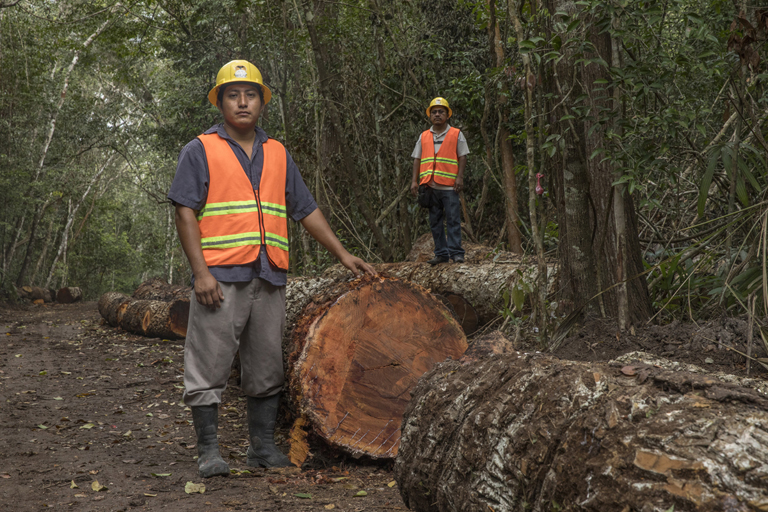First published on 06/28/2018, and last updated on 09/27/2018
Source: Mongabay
- On today’s episode, a special report on the community-based conservation and agroforestry operations known as ejidos in Mexico featuring ICCA Consortium Honorary member David Barkin.
- Mongabay Newscast host Mike Gaworecki traveled to Mexico’s Yucatan Peninsula in February to visit several ejidos in the states of Quintana Roo and Campeche. Ejidos are lands that are communally owned and operated as agroforestry operations, and they’ve proven to be effective at conserving forests while creating economic opportunities for the local rural communities who live and work on the land.
- But ejidos have also faced a threat to their own survival over the past decade, as younger generations, seeing no place for themselves in the fairly rigid structure of ejido governance, have moved out of the communities in large numbers. At the same time, the lack of inclusion of women in the official decision-making bodies, known as ejidatario assemblies, has also posed a challenge.
Listen here:
I traveled to Mexico’s Yucatan Peninsula in February to visit several ejidos in the states of Quintana Roo and Campeche. Ejidos are lands that are communally owned and operated as agroforestry operations, and they’ve proven to be effective at conserving forests while creating economic opportunities for the local rural communities who live and work on the land. But ejidos have also faced a threat to their own survival over the past decade, as younger generations, seeing no place for themselves in the fairly rigid structure of ejido governance, have moved out of the communities in large numbers. At the same time, the lack of inclusion of women in the official decision-making bodies, known as ejidatario assemblies, has also posed a challenge.
In order to find out how the ejidos of the Yucatan Peninsula are dealing with these problems, I spoke with a number of ejidatarios and youth from a variety of different ejidos, as well as Rainforest Alliance’s director general for Mexico and an academic who is an expert on Mexican community forestry.
Here are the lyrics to the “Rap de Calakmul” performed by 18-year-old Espiridion Gomez Jimenez, as well as a rough translation:
Calakmul es una zona de mayor diversidad
Flora y fauna y bellas ruinas que son de antigüedad
Habitadas por personas increíbles que tenían capacidad
De crear arquitectura de mayor diversidad
Calakmul es el hogar de muchos animales
Por montón y cantidad
Que se encuentran alejadas de la gente por causas sorprendentes
Como el gusto de matar
O el trafico ilegal y otros
Porque no tienen cerebro
Que son peor que el animal
Calakmul is an area of greater diversity
Flora and fauna and beautiful ruins that are of antiquity
Inhabited by incredible people who had ability
To create architecture of greater diversity
Calakmul is home to many animals
By lot and quantity
Who keep away from people for surprising reasons
Such as the pleasure of killing
Or illegal traffic and others
Because they have no brain
They are worse than the animal
